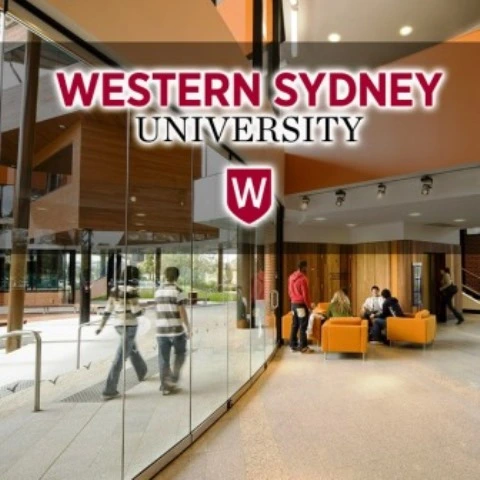In an exciting development for international education, Western Sydney University of Australia to open campus in Greater Noida. This significant move, following similar initiatives by Deakin University and the University of Wollongong, marks a new chapter in the global expansion of Australian universities. If approved, WSU’s campus in Greater Noida, Uttar Pradesh will offer a range of programs, including computer science, business, and engineering, along with a focus on sustainable agriculture and technology.
Let’s dive into the details of this groundbreaking announcement and what it means for the future of education in India.
Western Sydney University of Australia to Open Campus in Greater Noida- A Major Step for International Education
Key Highlights of Western Sydney University’s Expansion to India
| Event | Details |
|---|---|
| Location | Greater Noida, Uttar Pradesh, India |
| Key Programs | Computer Science, Business, Engineering, Sustainable Agriculture |
| Partnership | Memorandum of Understanding (MOU) signed with Uttar Pradesh Government |
| Focus Areas | AgriTech, Technology, Food Security, Research & Innovation |
| Previous Expansion | Deakin University and University of Wollongong have already set up campuses in Gujarat |
Why Greater Noida?
The decision to establish a Western Sydney University campus in Greater Noida aligns with the growing demand for high-quality international education in India. Greater Noida, located in Uttar Pradesh, is fast becoming a hub for educational institutions, making it an ideal location for WSU’s expansion. The campus will cater to students across various fields, especially those interested in computer science, business, and engineering, while addressing global challenges like sustainable agriculture and food security.
Professor Deborah Sweeney, acting Vice-Chancellor of WSU, highlighted that the university’s focus will be on creating innovative solutions for India’s AgriTech and technology sectors. These areas are crucial for the nation’s economic development and align with WSU’s global research ambitions.
The Vision for Sustainable Agriculture and Technology
In addition to the core academic programs, WSU is particularly interested in addressing critical issues like sustainable agriculture and food security. India, with its vast agricultural landscape, faces numerous challenges that require innovative technological solutions. WSU’s Greater Noida campus will play a pivotal role in training future leaders in these sectors.
The university plans to introduce specialized programs that combine research with practical solutions for improving agricultural productivity and food security. This will provide students with valuable opportunities to contribute to India’s growing AgriTech industry.
What Programs Can Students Expect?
The Western Sydney University Greater Noida campus will offer a diverse range of academic programs that cater to the needs of the Indian market and global industries. Here are some of the key areas that may be included:
- Computer Science: Focusing on software development, artificial intelligence, and data science.
- Business: Offering programs in management, entrepreneurship, and business administration.
- Engineering: Covering fields like civil, mechanical, and electrical engineering.
- AgriTech: Developing innovative solutions for sustainable farming practices, food security, and water management.
These programs will equip students with the skills needed to thrive in a rapidly evolving global workforce.
Future Collaborations and Expansion Plans
The Western Sydney University campus in Greater Noida is just the beginning of WSU’s growing presence in India. The university has expressed interest in expanding its footprint to other regions, including Bengaluru, where discussions have already taken place with local government officials. WSU aims to collaborate with Karnataka’s agricultural universities to establish an agricultural university focusing on water management and food processing.
As part of its ongoing efforts to build partnerships and promote international collaboration, WSU’s expansion in India will create new opportunities for students, faculty, and research professionals.
Western Sydney University’s decision to open a campus in Greater Noida is a significant step toward enhancing global educational opportunities in India. By offering programs in computer science, business, engineering, and sustainable agriculture, WSU is set to provide students with the tools needed to succeed in today’s competitive job market. As the campus takes shape, it promises to be a hub for innovation, collaboration, and future leadership in key global industries.
Frequently Asked Questions (FAQ)
Q1: When will Western Sydney University open its campus in Greater Noida?
A1: The exact opening date is yet to be confirmed, as the university is still in the process of securing approval. However, discussions and agreements with the Uttar Pradesh government are underway.
Q2: What programs will be available at the Greater Noida campus?
A2: The campus will offer a variety of programs, including computer science, business, engineering, and sustainable agriculture. Specific program details will be available closer to the opening date.
Q3: Is there a focus on sustainable agriculture at the Greater Noida campus?
A3: Yes, Western Sydney University is particularly focused on developing solutions for sustainable agriculture and food security. The campus will offer research opportunities and programs tailored to India’s AgriTech sector.
Q4: Will the campus be open to international students?
A4: While the primary focus will be on Indian students, the campus will likely attract international students as well, particularly from neighboring countries seeking high-quality education in fields like technology and engineering.
Q5: Will Western Sydney University collaborate with other institutions in India?
A5: Yes, Western Sydney University is open to forming partnerships with local institutions, especially in sectors like AgriTech and engineering. This includes potential collaborations with universities in Karnataka focused on agriculture.



